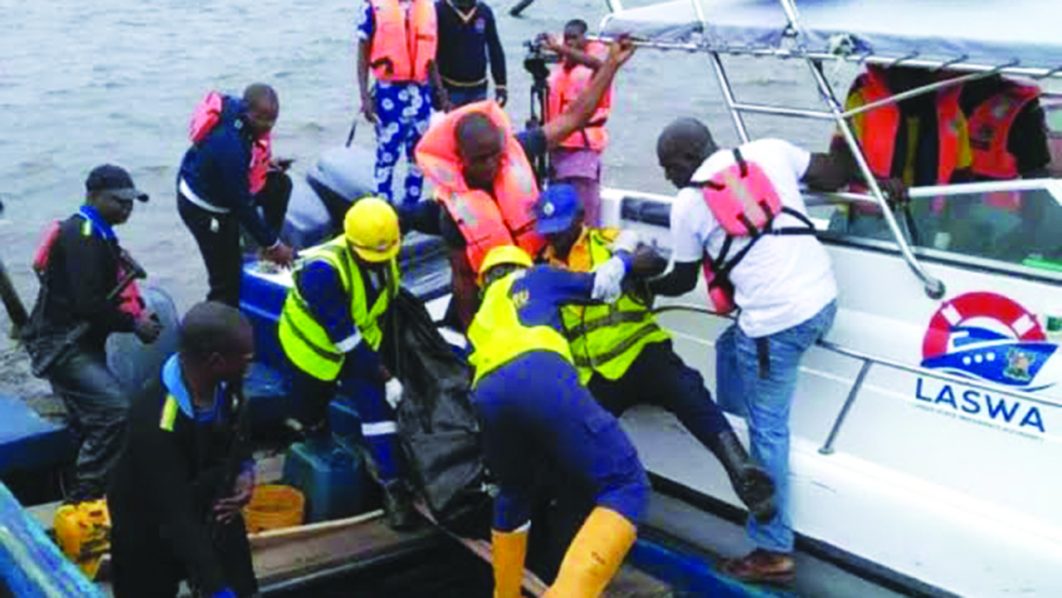
He seemingly interminable saga of accidents on the waterways in Nigeria is frightening and alarming. The frequency with which boat mishaps occurs is a sad reminder of a systemic failure across all sectors in the country. The rot has got to a critical stage such that waterways passengers can no longer be sure of their safety. Therefore, it would appear that boat passengers buy their death on demand for a trip across the river.
To arrest the high wastage of dear lives in Nigerian waters that is fast becoming a norm, governments at all levels need to show a lot more concern and proactive measures. Certainly Nigerians deserve more than the usual statement of promising to avert such accidents, or leaving no stone unturned to unravel the cause of the accident. All the three tiers of government have key roles to play in this matter, given that transportation, including water transportation, is a major factor in the daily lives of the average Nigerian, in the course of eking out a living or commuting fr social reasons. It will be a major failure on the part f government to allow life in the country to become so cheap and meaningless that if the ‘predator’ does not come in form of bandits, terrorists or kidnappers, it visits through decrepit boats on our waterways killing citizens in dozens and the best government officials can do is to lament and make empty promises, until the next accident.
The other day, the National Inland Waterways (NIWA) media department head Suleman Makama confirmed the death of several people in a Kogi boat mishap. According to Makama, the deceased were on their way to the market in Niger State when the boat, having about 200 pasengers, capsized along the Dambo-Ebuchi section of River Niger. Although the exact number of casualties or passengers is yet to be established simply because there was no manifest for the boat, the authorities were still recovering dead bodies days after.
No doubt, waterways transportation is one of the oldest modes of transportation globally dating back to the earliest civilization. Over the years people have travelled through the waterways as much as they have by land to accomplish individual demands.
In recent time however, accident on Nigerian waterways has become one too many, in October this year, over 100 died in Mokwa, while Zamfara state recorded about 40 deaths in September. Several other cases were not reported particularly in communities with difficult terrain. By now, government ought to have intervened in more pragmatic and firm ways, through legislation and practical monitoring of strict rules and regulations. Most of the boats involved in the accident were either too old or too dilapidated to be used for public transportation purpose; but in the absence of official monitoring, the operators get away with murder; and the hapless Nigerians.
However, in probing further on the sad incident, the Niger state Emergency Management said that, the boat was sailing from Ebe community in Kogi to kafcha market in Niger state with 50 passengers on board. While Makama maintained that the boat mishap involved quite a number of women, investigations are still on-going to ascertain the number of passengers and what led to the accident. But the managing director of NIWA Bola Oyebani was quick to point human errors, drugs and disobedience to rules and regulations as the major cause of the boat accident.
A lot has been said about boat accidents in different parts of the country. In other climes where the government is accountable to the people such boat trip would have a manifest, more so, the boat would be certified okay and must never be allowed to be overloaded as the case in point. It is no longer news that we do not have safe waterways; every attempt to travel through our waterways is like a suicide mission as passengers sail on old, decrepit and overloaded boats even as they do not wear live jackets.
The incidence of boat mishaps should be treated as a national emergency; and a situation where Nigerians sail on a ‘floating coffin’ should be seen as a nation-wide problem. Beyond official lamentation and buck-passing, what is the primary responsibility of NIWA? Which of the government agency is supposed to check and give sailing worthiness to the boats? Or make sure the boats are not overloaded and do not travel in the night.
To say the least, many of the boats that ply our waterways are a disaster waiting to happen. They hardly represent the best in quality and condition suitable for conveying passengers and goods for such journeys. Yet some public officials fail in their duties in pursuit of selfish interest as they look away when boat operators contravene the law. The question on everyone lips is who are the regulators, why do they allow rickety and sub-standard boats continue plying the waterways. It is important to put on record the fact that, the authorities concerned to enforce rules and regulations on the waterways transport system would be putting its name on the wrong side of history if ugly reports of accidents and deaths continue to hit Nigerians on the face from frequent boat mishaps.
Certainly, there is need for public enlightenment for the use of live jacket while travelling on the waterways. Also there is need for adequate monitoring and inspection of the boats to meet international safety standard. The federal, state and local governments should wake up and live up to their responsibility in protection of lives and property; and providing a safe environment across the country. Above all, it is time to unbundle the obstacles and battle of supremacy and control between the federal government and states linked with rivers. This will help to improve waterway transportation through sound regulations and introduction of modern watercraft for safe sailing of passengers and other ancillary businesses in the country.






